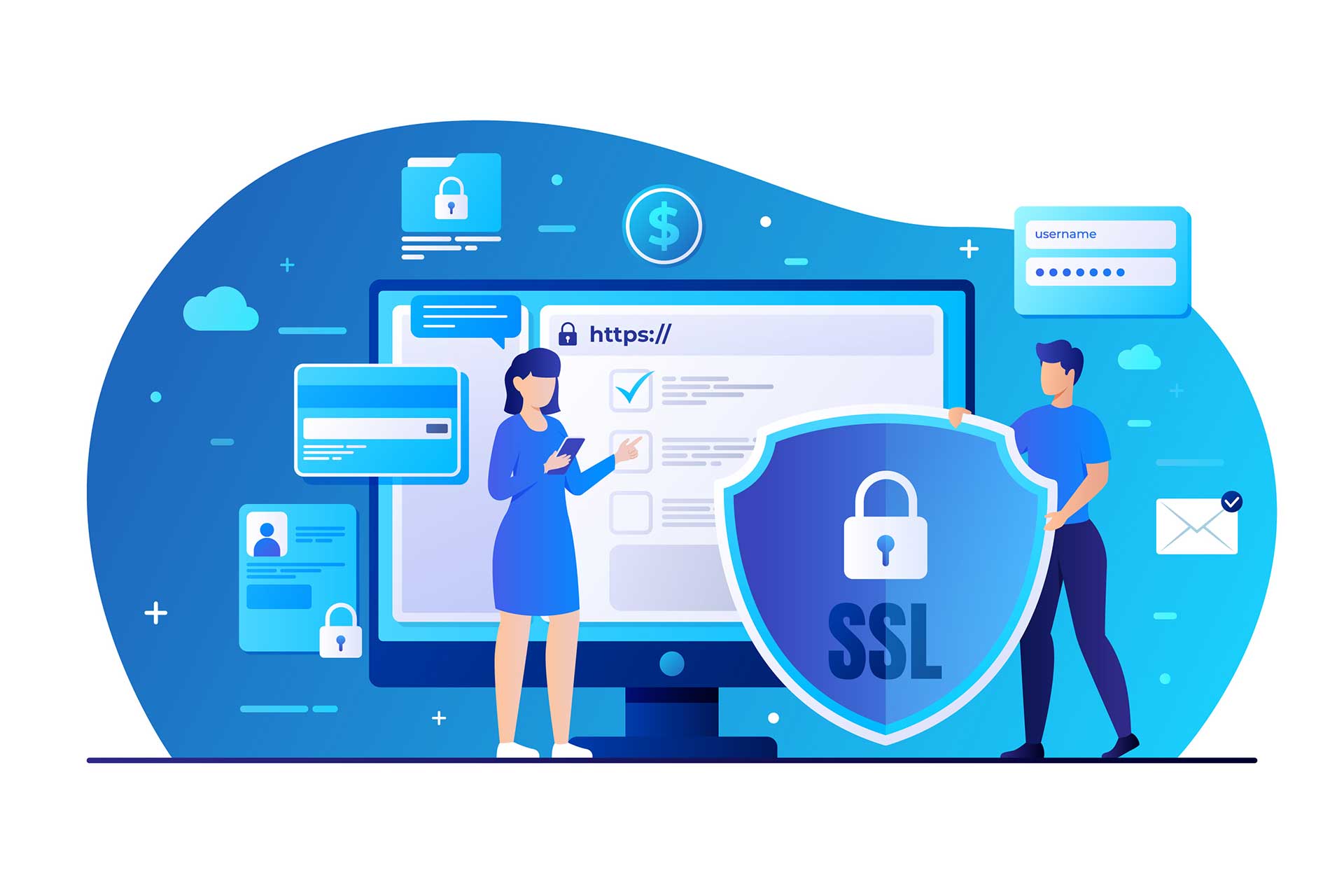A Comprehensive Guide to SSL Certificates and Online Trust
In the vast realm of the internet, where information flows freely, security is paramount. As online interactions become more prevalent, the need to safeguard sensitive data has never been more critical. This is where SSL certificates come into play, serving as the guardians of secure communication on the web. In this blog post, we’ll unravel the mystery surrounding SSL certificates, exploring their significance, how they work, and why they are essential for a trustworthy online experience.
What is an SSL Certificate?
An SSL (Secure Sockets Layer) certificate is a digital certificate that establishes a secure and encrypted connection between a user’s web browser and a website’s server. This encryption ensures that data exchanged between the two remains confidential and integral, shielding it from potential eavesdroppers and cyber threats.
How Does SSL Encryption Work?
SSL encryption functions like a secret code that only the intended recipient can decipher. When a user visits a website secured with an SSL certificate, the following process occurs:
- Handshake: A secure connection is initiated through a process called the SSL handshake. During this handshake, the server and the user’s browser agree on the encryption method they will use for the session.
- Encryption: Once the handshake is complete, data exchanged between the user and the server is encrypted. This means that even if intercepted, the data is nearly impossible for unauthorized parties to decipher.
- Decryption: When the encrypted data reaches its destination (the server or the user’s browser), it is decrypted and presented in its original form.
Why SSL Certificates Are Essential:
- Data Security: SSL certificates ensure that sensitive information such as login credentials, personal details, and financial transactions are shielded from prying eyes.
- User Trust: Websites with SSL certificates display visual cues like a padlock icon and “https://” in the URL, instilling confidence in users and signaling that the site is secure.
- SEO Benefits: Search engines prioritize secure websites in their rankings. Implementing an SSL certificate can positively impact your site’s search engine visibility.
- Preventing Man-in-the-Middle Attacks: SSL encryption mitigates the risk of man-in-the-middle attacks where an unauthorized entity intercepts and potentially alters the communication between the user and the server.
Types of SSL Certificates:
- Domain Validated (DV) Certificates: Verify domain ownership and are the most basic form of SSL certificates.
- Organization Validated (OV) Certificates: Include organizational details in addition to domain ownership.
- Extended Validation (EV) Certificates: Provide the highest level of validation, displaying the organization’s name prominently in the browser’s address bar.
Buy SSL Certificate: https://jujuhosting.com/ssl-certificate/
Conclusion:
In a digital landscape teeming with information, trust is the currency that defines online interactions. SSL certificates serve as the bedrock of this trust, ensuring that users can navigate the web with confidence. Whether you’re running a personal blog, an e-commerce site, or an enterprise-level platform, the implementation of an SSL certificate is not just a best practice—it’s a necessity for fostering a secure and trustworthy online environment. Elevate your website’s security today with an SSL certificate, because in the world of the internet, safety is the ultimate luxury.



